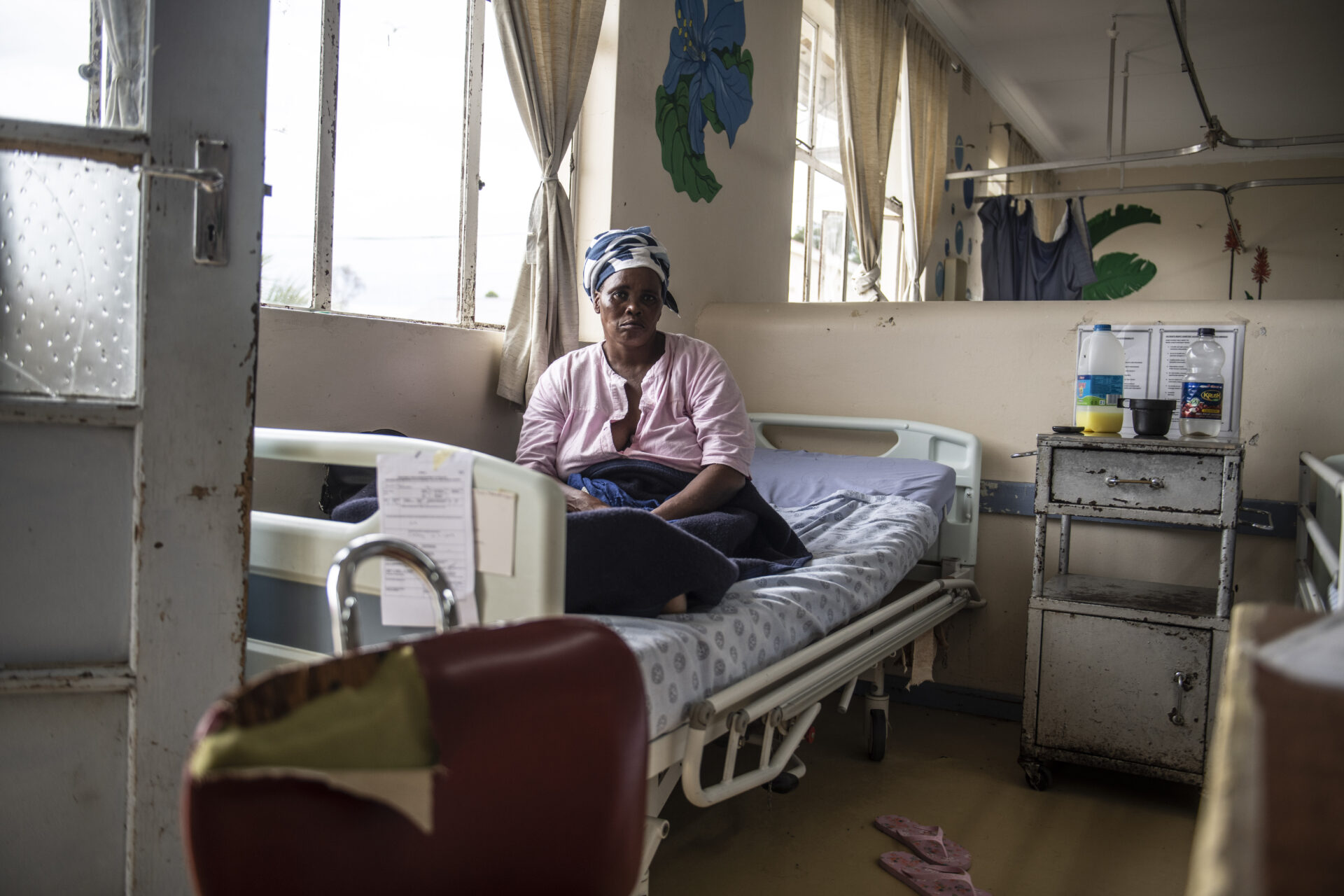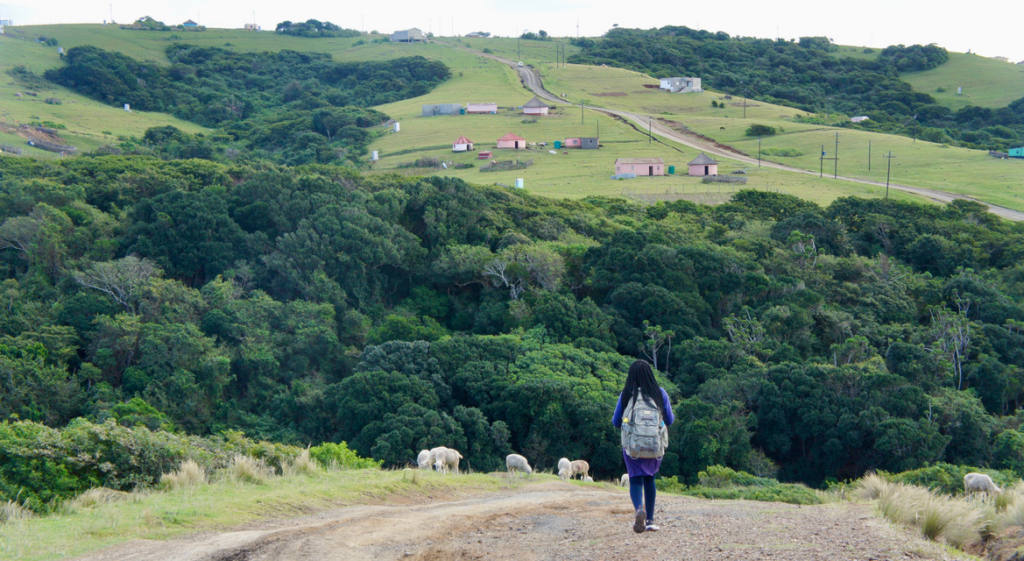- Dave Martin lives in the rural Eastern Cape and has been using government healthcare for the past two decades. He lives within reach of two well-run state hospitals.
- Martin co-founded a rural health and education organisation in the Eastern Cape, which runs a health post (small clinic) in collaboration with the provincial health department. This project taught him there are committed government health officials.
- But he’s concerned that the government’s National Health Insurance scheme will worsen things for people, because it’s trying to fix two problems — poorly-run public health facilities and re-distributing the money available for healthcare in the country in a more equitable way — at once.
COMMENT
As a resident of Nqileni village, about 100km from Mthatha, government health facilities have been my go to for the past 20 years.
There are few private healthcare facilities in this part of the world — the closest private hospital is three hours drive away.
But I’m fortunate. I live within reach of two well-run state hospitals: about 20 kilometres from both Zithulele and Madwaleni district hospitals in the Eastern Cape.
Madwaleni, for example, offers 24 hour services, such as maternal and child care with a neonatal high care unit, an accident and emergency unit, rehabilitation therapists, social workers and a registered counsellor and dietician.There are also surgical services like tendon repairs, amputations and skin grafts, an on-site laboratory and X-rays facilities. Most people here get these good quality amenities for free.
For things like childhood vaccinations and chronic medicine such as antiretroviral treatment for HIV, people in my community go to a local Bulungula Health Point run by a non-government organisation, Bulungula Incubator, in collaboration with the Eastern Cape health department. This project has taught me that even though inefficiency characterises much of the country’s public health system, there are also committed, hard-working government officials who work with a “can do” attitude to give remote communities access to quality healthcare.
I’m therefore very much in favour of anything that will improve state healthcare, which is why the proposed National Health Insurance (NHI) scheme interests me.
I think it’s fair to say the NHI aims to solve two problems: how to improve badly-run, under-resourced public health facilities and how to divide the money available for healthcare in the country in a more equitable way among South Africa’s people.
These are two worthy goals.
But in trying to solve both problems simultaneously, I fear it might actually make one of them worse.
If we look at well-functioning government hospitals, such as the rural Madwaleni and Zithulele in the Eastern Cape, or urban facilities like Groote Schuur in the Western Cape, the difference between these and struggling facilities isn’t resources, after all health budgets are allocated nationwide using the same formula. Rather, the difference in quality between successful and failing state health facilities seems largely due to the manner in which they are managed.
What the NHI seems to be wanting to do is to kill two birds with one stone. The Bill, which is currently being debated by the National Council of Provinces in Parliament, has provisions for how hospitals will be better run using a system where health facilities will be decentralised but funds will be controlled nationally.
Simultaneously, resources will be redivided, whereby money currently spent on private healthcare — in the form of medical aid premiums — will be spent on a one tier health system, the NHI. (The Bill makes it illegal for medical aids to exist in their current form — schemes will only be able to fund services the NHI doesn’t provide).
The plan is for a “phased implementation” with the current first phase, which will end in 2026 and the second phase which comes to a halt in 2028. While the Bill is vague on how these phases are meant to unfold, the end point seems to be clear: a redistribution of funds from private healthcare into the public system and a similar redistribution of patients between public and private health facilities.
Health Beat #4 | Can the NHI fix SA’s rural doctor dilemma?
Although those of us who work closely with the public health service naturally welcome the expected increase in public sector funding, it is incorrect to assume that this will automatically improve badly-run public hospitals. If you throw more money at them, things might look somewhat better for a while, but it would be just hiding the truth of the failing system of management.
In fact, you might actually worsen things by giving incompetent or corrupt managers and dysfunctional administrative departments even more resources to squander.
Obviously, in the process of wasting a larger amount of money, there’s some good that will come of it. If a hospital is getting R1-billion and squandering 30% of it, and now you give it R2-billion and it squanders 30% of that, you still will see some improvement in the hospital. But there’s double the amount of money that is now being squandered.
I can’t help feeling that the sequence here has to be, first we fix public healthcare to a decent standard that is possible within the existing financial framework and then we move on to redistributing resources between the public and private health sectors.
Well-run hospitals like Madwaleni and Zithulele show that it’s possible to first fix public facilities with the resources we’ve got, instead of throwing more money at failing institutions.
The NHI’s approach seems to avoid dealing with the difficult questions as to why some hospitals work well, and some don’t. In its attempt to increase funding for public health, it avoids the bigger challenge of fixing broken management and administrative systems.
If you address both issues at once, you’ll never know whether you actually fixed the failing institutions with good policies and new management structures or whether you just papered over the dysfunction by throwing more money at them … and in the process made everyone worse off.
The government says the NHI will bring about greater efficiency because a centralised system will be easier to run than our current nine provincially-run public health systems or the over 70 private medical schemes.
I can see that argument on paper. But I’m sceptical. Because whatever theoretical efficiency gains there are in administering one big scheme, these gains can be totally undermined by the extreme inefficiency we see in so many government departments and state-owned enterprises. New government agencies all aspire to replicate the efficiency of the South African Revenue Service but one must realistically consider the real possibility — and impact — of them evolving into the next SA Post Office or Passenger Rail Agency of South Africa.
Dave Martin is the co-founder of a rural health and education nonprofit in the Eastern Cape. He writes in his personal capacity.



